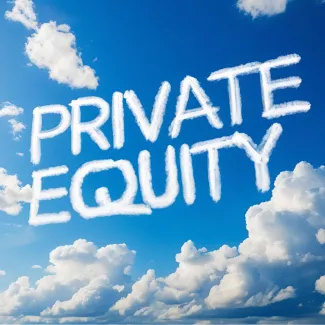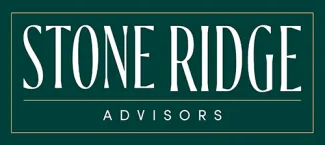What Creatives Need to Know About Democratized Private Equity
As independent fiduciary advisors, we continually look for innovative ways to grow our clients' wealth and diversify their portfolios. The recent trend of democratizing access to private equity might seem like a dream come true, offering investors with $1 million to $30 million dollar portfolios a chance to invest alongside ultra high-net-worth individuals and institutional investors. However, beneath the surface lies a complex web of risks and challenges that could jeopardize your financial stability. We believe that it's the rare high net worth client in the creative world who will truly benefit from an allocation to private investments. This blog post is written to educate our creative community about the potential pitfalls of private equity and private credit and explain why we recommend a cautious approach.
High Fees: Eroding Returns
One of the most significant dangers is the high fees associated with private equity investments. These costs can significantly erode returns, leaving investors with less than anticipated. While democratization aims to reduce costs, the reality is that annual all-in expenses remain high - reaching an estimated 5.4% per year for one popular product including the annual custody fee, but not including the upfront "placement fee" (the upscale term for commission) at one of the largest wealth managers. Investors excited by the exclusivity and prospect of higher returns could easily overlook the fine print and be deceived by temporary fee waivers that reduce the initial costs [1][4].
Liquidity Issues: Trapped Investments
The private equity investment cycle is long- often 10 years from capital commitment to exit. The typical individual investor holding period for a mutual fund or ETF is under 5 years with some studies suggesting 3 to 4 years or less. Although the newer democratized funds are adopting features to allow investors to withdraw their money periodically, they often include limits on liquidity meaning it can be difficult to sell your shares quickly if you need cash. This can be particularly problematic for creatives who may require more flexible financial options. The lack of liquidity can leave investors locked into investments for years, potentially missing out on other opportunities or being forced to sell at pennies on the dollar. [4][8]
Falling Returns: The Reality Check
Although many investors continue to believe that private equity offers higher returns than public markets, the reality is that returns now lag the S&P 500 over one, three, five and ten years [7]. Performance may continue to worsen because rising interest rates are exposing poor deals struck during the 2020-2022 period of ultra-low interest rates and excessive exuberance. 17% of private equity backed companies defaulted between January 2022 and August 2023, nearly double the rate of non-private equity backed companies, according to Moody's. [6][7]
Lack of Regulatory Oversight: A Wild West
The regulatory environment for democratized private equity is still evolving and can be challenging to navigate. This lack of clear oversight creates an environment ripe for information asymmetry and predatory practices. Simply put, retail investors often lack the negotiating power and insight that larger investors possess, making them vulnerable to unfair terms and hidden risks[4].
The Exit Risks That Could Leave You Stuck
As highlighted in an opinion piece published by the Financial Times on May 31, large investors are experiencing significant difficulties exiting their private equity investments. This exit challenge can have a cascading effect, impacting the entire market. If sophisticated investors are struggling to exit, it raises serious concerns for unsophisticated investors who might be entering the market without a clear understanding of these challenges[3][8].
Complexity: The Risk in Investing Without Deep Knowledge
Investing in private equity involves a level of complexity that can be daunting for unsophisticated investors. The strategies, risks, and returns are often not as straightforward as those in public markets. Without deep knowledge of the industry, investors may struggle to fully understand the operational risks, market risks, and regulatory challenges involved. For instance, private equity backed firms often use significant debt to finance their business, which can increase the risk of default if the company fails to meet its financial obligations. Additionally, the influence of private equity investors can lead to strategic shifts that may not align with the company's original vision, potentially destabilizing the business and impacting returns. This complexity demands a high level of financial sophistication and experience, making it challenging for retail investors to navigate effectively without professional guidance. [2][4][8][9]
The Hidden Villain in Private Equity: Conflicted Interests
Private equity investments often come with tangled webs of loyalty and incentive. Fund managers, advisors, and even company executives may hold multiple roles or have financial interests that diverge from those of the investor. For example, a fund manager might push for quick exits or sales to return money to preferred investors or to meet internal targets, even if it’s not the best timing or price for all shareholders. Regulatory efforts like the SEC’s Preferential Treatment Rule now require more transparency and equal treatment, but real-world cases show that conflicts persist—especially when managers are under pressure to close out funds or favor certain groups of investors for large, guaranteed returns. Retail investors, lacking insider information or bargaining power, can find themselves at a disadvantage. As regulations catch up and demand more disclosure, the essential question for creatives remains: whose interests are really being served in these deals?[2][4][8]
Why Unsophisticated Investors Are Being Targeted
The question remains: why are unsophisticated investors being targeted now? The democratization of private equity has created new opportunities for platforms and financial operators to tap into a broader market. BlackRock alone plans to raise $400 billion in investor assets between 2025 and 2030. Greater volatility and declining returns in U.S. public equities may increase the allure of private equity, while the high fee structure could foster serious conflicts of interest. This push to include retail investors in private markets may also be driven by a desire to offload assets at inflated prices to less-informed buyers. The lack of negotiating power and insight among retail investors makes them more susceptible to these practices[2][4].
Capability with Responsibility: The Independent Fiduciary Difference
Some of our clients are surprised to learn that Stone Ridge Advisors is fully enabled to offer access to private market investments. We can offer broad access via the Charles Schwab alternatives platform with three important differences from Wall Street bank offerings: (1) lower custody fees, (2) our fee-only structure eliminates commissions and other incentives so that you always get advice that puts your interests first, and (3) no corporate pressure to increase client participation. Unlike Wall Street firms, our capability in private investments is tempered by our unwavering commitment to always act as a fiduciary advisor to our clients. If we recommend an allocation to private investments, you can be confident that our recommendation is based solely on your needs.
Conclusion
While the democratization of private equity might seem like an exciting opportunity, creatives should approach with caution. High fees, liquidity issues, potential for falling returns, conflicts of interest, lack of regulatory oversight, and difficulties in exiting investments all pose significant risks. It's essential to educate yourself thoroughly about these challenges and consider seeking independent professional advice before diving into this complex and potentially treacherous market.
For those considering investing in democratized private equity, it's crucial to approach with caution. Ensure you understand the risks and seek professional advice from either an independent fiduciary or qualified legal counsel to navigate these complex markets effectively. Making a mistake could cost many thousands of dollars in wasted fees and lost opportunity.
Bonus: Checklist for Creatives Contemplating Private Equity Investing
1) What problem does private equity solve for me that can't be addressed by ETF's and mutual funds?
2) Am I OK giving up daily liquidity and transparent pricing?
3) Do I see value in paying 20 to 40 times more each year for a private equity investment vs. an ETF or mutual fund?
4) Do I have a complete breakdown of the costs in writing? Do I know about any fee waivers and their end dates?
5) Will my advisor get paid more if they put me into private equity instead of a mutual fund or ETF?
6) Do I know what happens if I want to take all or some of my money out?
7) How confident am I that I understand private equity?
Resources
Want to chat? A second opinion? Schedule a free
15 minute call - no strings
Got a topic you want to know more about? Click
here to text me
References:
- Private market funds lag US stocks over short and long term- FT.com
- CAIA Blog on Democratization of Private Markets
- Penn Law Review Article on Private Equity for the People


